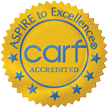What Are Prescription Stimulants?
Prescription stimulants increase the levels of two neurotransmitters in the brain—dopamine and norepinephrine. These chemicals play a crucial role in regulating mood, attention, and energy, which is why these medications are effective in treating ADHD and narcolepsy. By stimulating the central nervous system, these drugs enhance the brain’s ability to focus, control impulses, and remain awake.
Commonly Prescribed Stimulants
Doctors frequently prescribe several stimulant medications for specific conditions. These include common stimulants:
- Adderall (Dextroamphetamine/Amphetamine)
- Focalin, Focalin XR (Dexmethylphenidate)
- Ritalin, Concerta, Methylin (Methylphenidate)
- Vyvanse (Lisdexamfetamine)
- Dexedrine (Dextroamphetamine)
- Desoxyn (Methamphetamine)
While these medications serve important clinical purposes, they can also be misused, leading to dependency, addiction, and various health problems. Additionally, many of these medications are known by street names such as “Speed” or “Uppers,” highlighting their potential for abuse in non-medical contexts.
Misuse of Prescription Stimulants
Misuse occurs when these stimulants are taken without a prescription, in higher doses, or for purposes beyond their medical intent. People may misuse these drugs for various reasons, including to enhance performance, increase energy, or experience euphoria.
Common Ways Prescription Stimulants Are Misused
- Non-Prescribed Use: Taking the drug without a prescription or against medical advice.
- Recreational Use: Using stimulants for their euphoric effects or to “get high.”
- Unauthorized Access: Borrowing or stealing prescription medications from others.
Methods of Misuse
Prescription stimulants are typically administered in pill form but can be misused in several ways, including:
- Swallowing: Taking more pills than prescribed.
- Crushing and Snorting: Altering the medication’s form to increase its effect.
- Smoking: Heating the drug and inhaling it.
- Dissolving and Injecting: Injecting the drug into the bloodstream after it has been dissolved poses significant health risks, including the potential spread of diseases like HIV and hepatitis.
Short-Term Effects of Prescription Stimulant Misuse
In the short term, those who misuse prescription stimulants may experience a range of side effects. These can include:
- Elevated heart rate and blood pressure
- Increased respiratory rate
- Heightened alertness and energy
- A sense of euphoria or “rush”
However, when misused in large quantities, these stimulants can cause life-threatening conditions such as:
- Dangerously high body temperatures
- Abnormal heart rhythms
- Heart failure
- Seizures
It’s important to use prescription stimulants only under the supervision of a healthcare professional to avoid these serious health risks.
Long-Term Health Consequences of Prescription Stimulant Addiction
Chronic misuse of prescription stimulants can result in severe long-term effects, both physically and mentally. Prolonged use may lead to:
- Psychosis: Characterized by hallucinations, delusions, and loss of touch with reality.
- Paranoia: Unjustified feelings of mistrust or suspicion of others.
- Aggression and Irritability: Heightened anger and volatile mood swings.
- Cardiovascular Problems: Long-term stimulant use can put immense strain on the heart, leading to heart disease or stroke.
For individuals who inject stimulants, there is also an increased risk of infectious diseases like HIV and hepatitis due to the sharing of needles or risky behaviors stemming from impaired judgment.
Overdose Risks and Symptoms
One of the most dangerous consequences of stimulant misuse is the risk of overdose. Overdosing on prescription stimulants can be life-threatening and requires immediate medical attention.
Common overdose symptoms include:
- Rapid breathing, restlessness, and confusion
- High body temperatures
- Hallucinations and panic
- Seizures and irregular heart rhythms
- Severe abdominal pain, vomiting, or diarrhea
If you suspect someone is experiencing a stimulant overdose, it is critical to seek emergency medical assistance immediately. Timely intervention can save lives.
Prescription Stimulant Addiction and Substance Use Disorder (SUD)
The misuse of prescription stimulants can lead to the development of substance use disorder (SUD), a condition in which a person becomes physically or psychologically dependent on the drug. As individuals develop tolerance to the drug, they may require increasingly larger doses to achieve the same effects, putting them at higher risk for addiction.
Signs of Substance Use Disorder include:
- Continuing to use stimulants despite adverse health effects.
- Inability to manage responsibilities at work, school, or home.
- Withdrawal symptoms when trying to stop or reduce stimulant use.
Withdrawal Symptoms can include:
- Extreme fatigue and lack of energy.
- Mood changes, including depression and irritability.
- Difficulty sleeping or disrupted sleep patterns.


“Their treatment program is so much more than pills or meetings – it taught me how to rebuild my life from the ground up.”
Cedar Recovery’s Stimulant Addiction Treatment Programs
At Cedar Recovery, we offer specialized treatment programs designed to help individuals overcome stimulant drug addiction. Our programs are based on the latest scientific research and are tailored to meet the specific needs of each patient.
Our Treatment Programs Include:
- Outpatient Opioid Rehab Treatment: Our personalized outpatient program combines Medication-Assisted Treatment (MAT) with individual and group therapy, offering a comprehensive approach to address opioid addiction while accommodating daily life responsibilities.
- Intensive Outpatient Program (IOP): Our IOP provides a structured yet flexible treatment path, incorporating educational workshops, individual and group therapy sessions, and peer support to help individuals rebuild their lives.
- Telehealth Services via Studio Health: Access addiction and mental health services from the comfort and privacy of your own home through our secure online platform, offering convenience and confidentiality.
- Aftercare Programs: We provide ongoing support through therapy, medication management, and connection to community resources, ensuring a smooth transition and fostering sustained recovery.
Break Free from Prescription Stimulant Addiction
Take control of your future today. If you or a loved one is struggling with substance abuse, Cedar Recovery is here to help. Our expert team offers personalized, compassionate care through outpatient centers and convenient telehealth services in Tennessee and Virginia. We accept most insurance plans and tailor treatment to fit your needs. Don’t wait—start your journey to lasting recovery now. Call Cedar Recovery at +1 (800) 799-1450 and take the first step toward a healthier, happier life.







